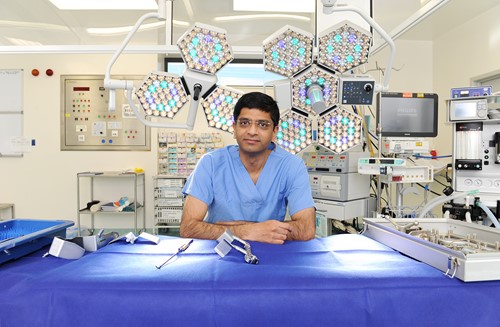
Pictured: Mr Lognathen Balacumaraswami, Consultant Cardiothoracic Surgeon
Consultants at University Hospitals of North Midlands were amongst the very first to perform minimally invasive coronary artery bypass graft surgery. Normal bypass surgery involves opening up the chest to operate and stopping the heart with the aid of a machine.
This newer procedure involves making a small cut of about 2.5 inches between the ribs and using cameras and small instruments during treatment. The procedure was so ground-breaking that our consultants even helped to design how the instruments should actually be created. Recovery time for patients is two to three weeks as opposed to up to three months using previous techniques. The patient is then discharged and back at home within 72 hours.
Mr Lognathen Balacumaraswami, a Consultant Cardiothoracic Surgeon (pictured above), leads his team in this ground-breaking procedure.
